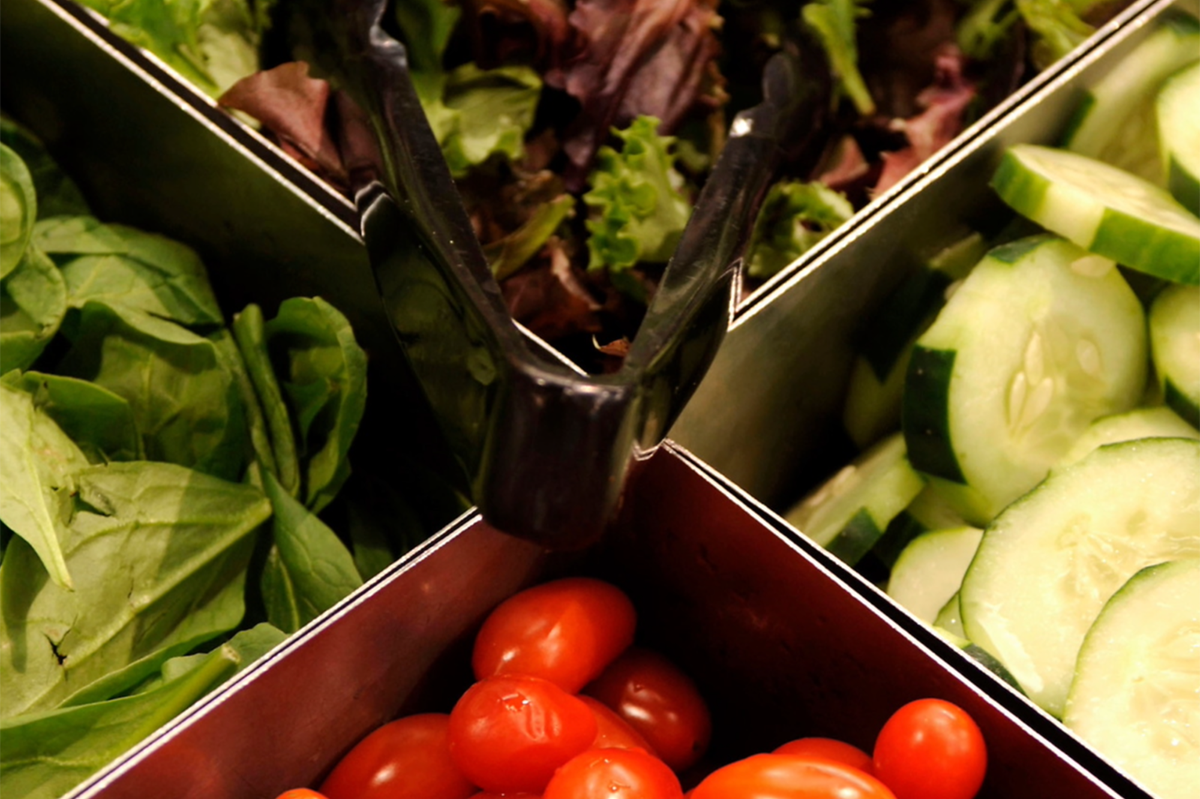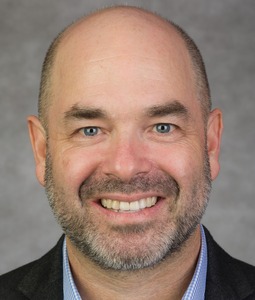 (Photo by Jamie Moncrief/DePaul University)
(Photo by Jamie Moncrief/DePaul University)Equitably and sustainably sourced foods are vital to the wellbeing of all people, yet the inaccessibility of such food makes healthy living difficult for many. Multiple bus rides to grocery stores filled with processed foods and costly organic produce isolate many people from these building blocks of wellness. Furthermore, those who produce food locally and regionally are not always able to reach buyers.
Howard Rosing, Director of DePaul’s Irwin W. Steans Center, researches this type of inequity as part of the center’s service-learning initiatives integrated into DePaul’s curriculum. The Cook County Department of Environment and Sustainability recently awarded him $148,943 to further his research on agricultural business practices and support growers that increase community access to fresh, healthy food in the county. The award builds on $90,000 plus in prior awards from the National Science Foundation and the Chicago Food Policy Action Council.
Through the project, Rosing collaborates with graduate students from DePaul and other universities to analyze the effectiveness of Chicago’s and Cook County’s Good Food Purchasing Policy. The policy aims to create healthier and more sustainable food supply chains that provide food for correctional, educational and hospital institutions, among other public agencies in the city and county.
Utilizing ethnographic methods and conversational style interviews, along with geographic information systems, Rosing and his students develop close relationships with commercial growers to explore how they can weave their products into public procurement supply chains.
 (Photo courtesy of Howard Rosing) “We’re all working with CFPAC to help support the evaluation of these policies, and our role at DePaul has been to look at growers of food for human consumption who could potentially be part of these supply chains that serve publicly funded institutions,” Rosing says.
(Photo courtesy of Howard Rosing) “We’re all working with CFPAC to help support the evaluation of these policies, and our role at DePaul has been to look at growers of food for human consumption who could potentially be part of these supply chains that serve publicly funded institutions,” Rosing says. Rosing and his graduate research assistants began this project last spring and summer by initiating communication and connections with various growers within a 300-mile radius of Chicago, organizing a large database of potential food suppliers.
“Graduate students and I have been engaging in research to communicate with growers and learn about how, why, what and when they are growing food to get a sense of their understanding of how they could engage with this policy through developing relationships with buyers,” Rosing says.
DePaul sustainable urban development and GIS graduate student Ola Klimczak has been involved with the project since early 2023. Klimczak schedules interviews with farmers and collects qualitative data using asset-based community development methods, which emphasize the communities' strengths and how to build on them.
“We want to know more about the capacity and goals of farmers instead of operating from a place of assumptions in institutional buying,” Klimczak says.
Driven by the farmers’ strengths, interests and skills, Klimczak’s interest and passion for this research project stems from their upbringing as a Chicago native, witnessing the food inequity on Chicago’s south and west sides.
“I wanted to make a lasting impact in connecting and gathering the goals, strengths, challenges and interests of the communities through the surrounding Chicago region,” they say.
Rosing’s research includes exploring potential local suppliers for major food service providers such as Chartwells, Sodexo and Aramark, and specifically focuses on connecting farmers and growers of color.
“It’s also about understanding who the suppliers could be and there is an emphasis in the project on prioritizing Black, Indigenous and people of color growers,” Rosing says.
The potential benefits of this work are many for both consumers and growers of food.
“If public money can go into supporting BIPOC growers who have been marginalized from the food system, that’s a win,” Rosing says. “If those public dollars can also allow more fresh food to be available in those communities, that could also be a win.”
Klimczak also hopes to integrate their findings into future CFPAC efforts at expanding equitable institutional procurement from local and regional growers.
Rosing’s passion for this project stems from his long-time experience teaching, developing and supporting service-learning courses at DePaul. He currently supports DePaul’s minor in food studies and the graduate certificate in sustainable urban food systems.
“Given the mission of the university and the work of community engagement and service learning, more food equity seems to be a very good place to work on my interests, and to work with DePaul students and other faculty,” Rosing says. “It’s all intertwined.”